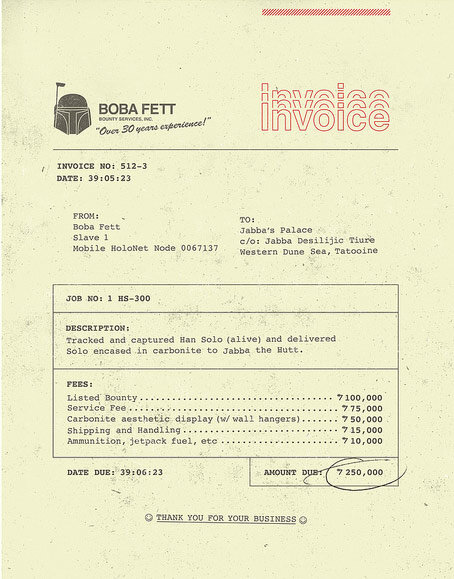
What Unincorporated Small Business Owners Need to Know about Filing Their Taxes
Being a small business owner comes with challenges, not the least of which is doing your taxes. While most Canadian taxpayers have relatively simple tax returns that can easily be completed using software, small business owners have the additional burden of reporting details relating to their businesses. This can seem onerous, but understanding what needs to be done, and when, can significantly help reduce the stress and ensure that the tax filing process is smooth and straightforward.
One of the types of income on which you pay income taxes is what Revenue Canada (CRA) refers to as “income from self-employment” that is essentially the same as income from a small business. If you do have business income, then you are required to declare your business income on a tax return. As an unincorporated small business owner, this business income is reflected on a separate schedule on your personal tax return. The schedule is called a T2125, which is a “statement of business activities” (discussed below) and at minimum requires that you show any income you earned from a business venture. If you have incurred expenses to earn the business income, you may also deduct these from your gross revenues or sales to arrive at net income from business. Unlike a simple personal tax return with no business income, the information that must be reported on a T2125 is generally not simply provided to you on a tax slip, such as a T4 or T5, but must be compiled and calculated.

9 Tips For Managing Your Customer Receivables
Any sales that occur within a business where payment is not made up front (eg. retail) or in advance of the sale (eg. down payment for a car), is reflected as an “Accounts Receivable”, which is accounting terminology for amounts owing by customers to a business. It is good to have accounts receivable, as this means you are generating sales. The downside, however, of having accounts receivable is that it represents cash that you don't have now, and along with that comes the possibility that your customers won’t pay you. Luckily a good system to manage your accounts receivable will help to reduce the number of non paying customers thereby avoiding bad debts. Below are some steps to help manage and collect on your accounts receivable:

20 Essential Tax Facts for Small Business/Self Employed Owners
Probably the most popular question posed to accountants and tax preparers (especially around this time of year) is what types of expenses are deductible. The short answer is that an expense is considered to be deductible if it has been incurred with the ultimate purpose of earning income. For example if you purchase a domain name with the intent of setting up a website to sell your goods or services, this would be a deductible expense. However, if the purpose of your website is simply a place to show pictures of your cat, this would not be considered a business and therefore not a deductible expense. Of course if your cat picture website starts to become popular and you decide that you want to actively build this business by advertising on the site or partnering up with cat product resellers, your non commercial hobby could then be considered a business. Since you now have the intent to build a business the income earned would have to be reported and expenses incurred to earn this income would be deductible.

How to Register your Sole Proprietorship in Each Province
Once you have decided to start a new business and have concluded that the best structure for your business is a Sole Proprietorship, the next step is to determine if you need to register it. If you are using your exact first and last name, and only your exact first and last name, then you are not required to register your business, regardless of which province your are located in. However, if you are using a business name that is anything other than your own name, you are required to register your business in all provinces, with the exception of Newfoundland and Labrador where registration of Sole Proprietorships is not required.

7 Qualities of Highly Desirable Clients
When you are a business owner/freelancer, there is wonderful feeling of gratification when you land a great client. These are clients that ask great questions, respect our work and make us feel happy to have chosen the entrepreneurial route. Then there are the not so great clients who have unrealistic expectations, are unimaginative and often just plain clueless.
It should also go without saying that we must also do what it takes to be provide an excellent experience to our clients and customers. It is not dissimilar from being in a relationship with a partner or spouse and for both sides to get the most out of it, you as the service provider, must also be responsive, respectful, fair and transparent.

Tax Obligations Every Canadian Small Business Should Know
It is therefore prudent for both sole proprietorships and incorporated businesses to keep on top of their tax filings.
In this article I enumerate the tax obligations for most small businesses in Canada along with links to articles to help you understand each one better.

How to Register a Small Business in Quebec
Budding entrepreneurs wanting to setting up a small business (or becoming self employed), either on a full time or part time basis, are often not sure where to start. The process of registering a business in Quebec, depending on your circumstances, can actually be quite straightforward . Below we look at the questions that you need answer to determine your business registration obligations:

What Types of Advertising/Marketing Expenses Can Small Businesses Deduct?
In the past advertising for small business owners mostly involved ads for print, television or radio (a catchy jingle was always a good way to go), cold calling (rarely a pleasant experience), sending out flyers or courting potential customers at a conference. Unfortunately, these types of advertising were problematic in that it is difficult to gage the direct impact of their effectiveness. Additionally, they were often fairly costly, which can especially difficult for small business owners to afford.
Over the past few years the avenues for advertising have grown exponentially. Many types of advertising don’t even cost anything, except time. You can buy ads on numerous social media outlets that appeal to your target market or if you want to go the free route, you can set up a social media account, post regularly and build an audience. Alternatively, you can set up a website which you can then optimize so that google and other search engines display it when someone is looking for your product or service. Email newsletters are also another effective and direct way of reaching potential buyers. One of the great benefits of these types of advertising is that you are better able to monitor the effectiveness of your chosen strategy.

Frequently Asked Questions About Salary and Dividends by Owners of Corporations
As an accountant and small business financial consultant, one of the most common areas of confusion and questions by small business corporation owners revolves around how to pay themselves and if one way is preferable to another. I have addressed some of them in my blog posts on the factors to consider when choosing salary or dividends and the types of ways to structure your remuneration . There are however specific questions that common up frequently:

What Types of Car Expenses Can Business Owners Deduct
Access to a car can be crucial to running a small business effectively. Costs of ownership, however, can be high relative to your revenues, especially in the early stages when your business is not hugely profitable. Luckily, Revenue Canada (CRA) and Revenue Quebec (RQ) allow both unincorporated/self employed individuals and owners/employees of corporations, who use their cars to generate income, to deduct the relevant expenses. Both CRA and RQ provide detailed guidance and have specific rules relating to the write off of car expenses. I discuss some of the main provisions that impact small business owners in this article and provide guidance on the differences between unincorporated (self employed/small business) owners and corporations.

Should you use accounting software or a spreadsheet to track your small business finances?
Over the years my clients have come to me with their financial data in various formats. I have received shoeboxes of receipts which need to be deciphered and compiled. Some clients have given me their spreadsheets in excel, google or occasionally summaries in a word document. Others decided it made sense to use accounting software right at the outset of their businesses.
In many cases, using a spreadsheet is perfectly fine and sufficient for small business or self employed individuals where you simply need a way to determine your income and expenses. There are situations, especially when you are planning to do your own small business accounting, where it can be significantly beneficial to upgrade your record keeping from a spreadsheet to accounting software. I have enumerated some of the factors to consider when determining if your spreadsheet is enough for your accounting needs or whether it is time to upgrade.

Are Gifts to customers and business associates deductible expenses?
Giving gifts to clients or customers can be a great way to build goodwill, foster customer loyalty and differentiate yourself from your competition. Gifts can be anything from a simple bouquet of flowers to something a bit more personalized based on your knowledge of the customer (it can be useful to listen carefully or probe gently to find out what your customers might want as a thoughtful gift can be tremendously impactful). A gift can be given around the holidays, on birthdays, after closing a sale or any other time as a simple thank you. Of course, if you are buying gifts on behalf of your business, it is important to understand if they qualify as tax deductible expenses and it what circumstances.

Should New Business Owners Register for GST/HST?
The Goods and Services Tax or GST is a consumption tax that is charged on most goods and services sold within Canada, regardless of where your business is located. Subject to certain exceptions, all businesses are required to charge GST , currently at 5%, plus applicable provincial sales taxes. A business effectively acts as an agent for Revenue Canada by collecting the taxes and remitting them on a periodic basis. Businesses are also permitted to claim the taxes paid on expenses incurred that relate to their business activities. These are referred to as Input Tax Credits.

Make Your Taxes Easier with this Detailed Checklist
The deadline to file tax returns is quickly approaching, resulting in various degrees anxiety for some taxpayers and accountants. The good news is that the stress can be managed fairly easily with some simple organization techniques. The most effective starting point is to evaluate your tax situation and prepare a checklist of the documentation that you will need with respect to your specific tax situation. A checklist can help to ensure that important items are not overlooked in the rush to put everything together (and, of course, its always satisfying to cross something off the list).

Guidance on Deducting Home Office Expenses
One of the benefits of having a home based business (for freelancers, self employed contractors and small business owners) is that you can deduct the expenses relating to the space that you use to work. This can result in a reduction in your tax bill for costs that you would incur regardless, which is certainly an incentive to being your own boss.
Criteria for Deductibility:
For home office expenses to be deductible, they have to meet the following criteria:
It has to be your principal place of business i.e. you cannot deduct home office expenses if you have another office that relates to your business, elsewhere, even if you work 22 hours a day or you check your blackberry in bed.
The space designated as your home office is used to earn business income and/or you meet clients or customers on a regular basis. You can deduct expenses relating to the workspace in your garage which is used for home improvement projects.
